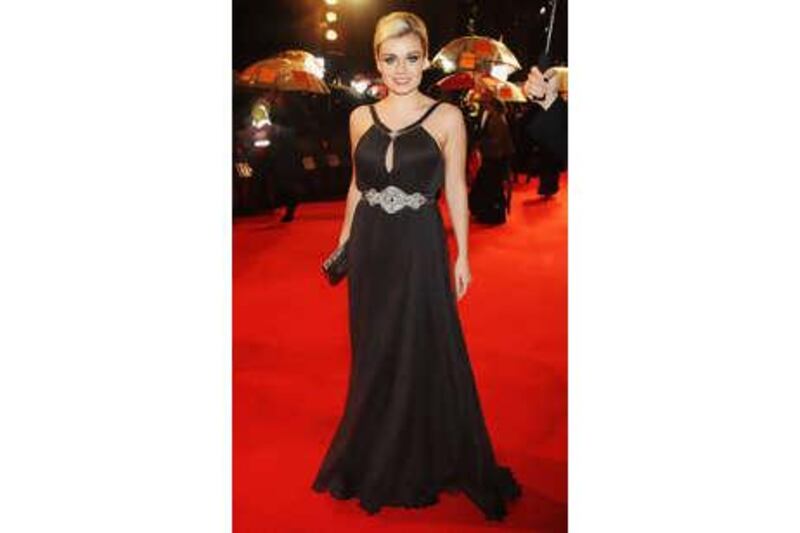Music festivals used to mean one thing: a three-day extravaganza of rock 'n' roll, a chance to check out of the drudgery of modern life and live like a hippy. Washing wasn't just optional, it was nigh-on impossible. There was mud, tents and bad toilets. But none of that mattered, because for a gloriously brief weekend, it was all about the music, man. And that music was definitely not Mozart. It was more likely to be Metallica.
But the rise of the boutique festival in the last five years, where you'll be more likely to snack on homemade babaghanoush rather than ropey kebab, and the tents not only come ready pitched but have beds in them, meant that it was only a matter of time before classical music got in on the act. And that doesn't mean Nigel Kennedy pitching up at Latitude. Last weekend, Serenata welcomed some of classical's biggest stars and organisors were expecting 5,000 festival-goers to flock to the Isle Of Purbeck, a beautiful part of the Dorset coast in the south of England, for classical's very own version of Glastonbury.
The opening stanzas of Serenata began on Thursday, with the organisers excitedly proclaiming that it's Britain's first classical music festival. That's slightly cheeky. Britain's first classical music festival is generally reckoned to have occurred around 1784. Indeed, one of the most famous and enduring festivals of all time makes even Glastonbury look like an upstart: The Proms has been celebrating the likes of Wagner and Beethoven during its summer run in London since 1895. Classical music industry insiders have been rather amused by Serenata's claim as well.
Depending on who you talk to, there have probably been in the region of 150-200 classical music festivals in Britain this year alone. And then, of course, there's Glyndebourne, the world-famous annual celebration of opera. But Serenata stands apart from all these concert hall-based celebrations of composers because it genuinely is a festival in the modern sense of the term: open air, over a long weekend and under canvas.
It boasts a multitude of poppy, classical crossover vocal artists. The headliners were Blake, Katherine Jenkins and Russell Watson. And it's been programmed to feel very much like a rock 'n' roll festival. If Russell Watson's slightly daytime television approach to opera singing didn't appeal, then on another stage there was Shlomo and the Vocal Orchestra. The impossibly cool beatbox troupe make all their sounds using their vocal cords, and have collaborated with Bjork.
So Serenata is without doubt aimed squarely at the more populist end of the market, but lower down the bill there was a smattering of people who would more typically be defined as classical musicians: the world-famous clarinettist Emma Johnson, the hot young pianist Benjamin Grosvenor and the award-winning violinist Ruth Palmer. The only obvious omission was the lack of a famous symphony orchestra, although that's not a huge surprise.
The likes of the London Symphony Orchestra or the Halle need the controlled environment of a concert hall to sound their best, not the possibility of light rain and30kph winds. But despite the crowd-pleasing headliners, setting up a classical music festival like this is still something of a gamble. The hard-core classical fans will surely turn their noses up at the appearance of mezzo-soprano Faryl Smith on the bill, simply because she memorably shot to fame on Britain's Got Talent, a prime-time television show.
And will the average Katherine Jenkins fan really want to camp in a field for three nights, even if the added promise of cliff-top yoga and gourmet food sounds delightfully enticing? Well, recent pop era hits and crossover successes seem to indicate that they will. Smith's debut record, Faryl, was the fastest-selling solo classical release in British chart history. Blake, widely known as the classically trained all-male vocal act who formed on Facebook, might have Puccini's Nessun Dorma in their repertoire, but it's alongside Snow Patrol's Chasing Cars.
Such an all-encompassing approach, along with their good looks, it must be said, has led to half a million people owning a Blake record. But the question remains, do Blake fans and festivals mix? "Well, the people who are coming are a combination of classical music lovers, families and students," says festival director Anthony Malpas. "Some are coming for the music and some for an exceptional event, in a fabulous setting with enjoyable food and drink. Because of the wide range of musical talent that will be at Serenata, there is something for everyone to enjoy."
Malpas feels that this is the right time to bring classical music to a wider public in what he calls this "new and exciting format". And there's certainly the sense that the classical crossover artists, at least, feel that their music deserves the same kind of exposure and visibility that rock 'n' roll enjoys. As Blake's Stephen Bowman says on the Serenata festival website, "Classical music has now come to a point where it knows it has to engage with real people. It can't be inside opera houses, tucked away, being kept clean and tidy. There are a lot of people who like classical music, but they think 'oh, do I really want to go and sit in the Albert Hall for two hours where I can't move or talk?'"
All of which would undoubtedly raise the hackles of more traditional classical music fans. But nobody at Serenata is taking the rarefied atmosphere of the concert hall away from them. All Malpas is suggesting is that some classical music fans don't mind camping if it means listening to their favourite acts for three days. It might not be Britain's first classical music festival. It might not even be the purest classical music. But Serenata is certainly different.





